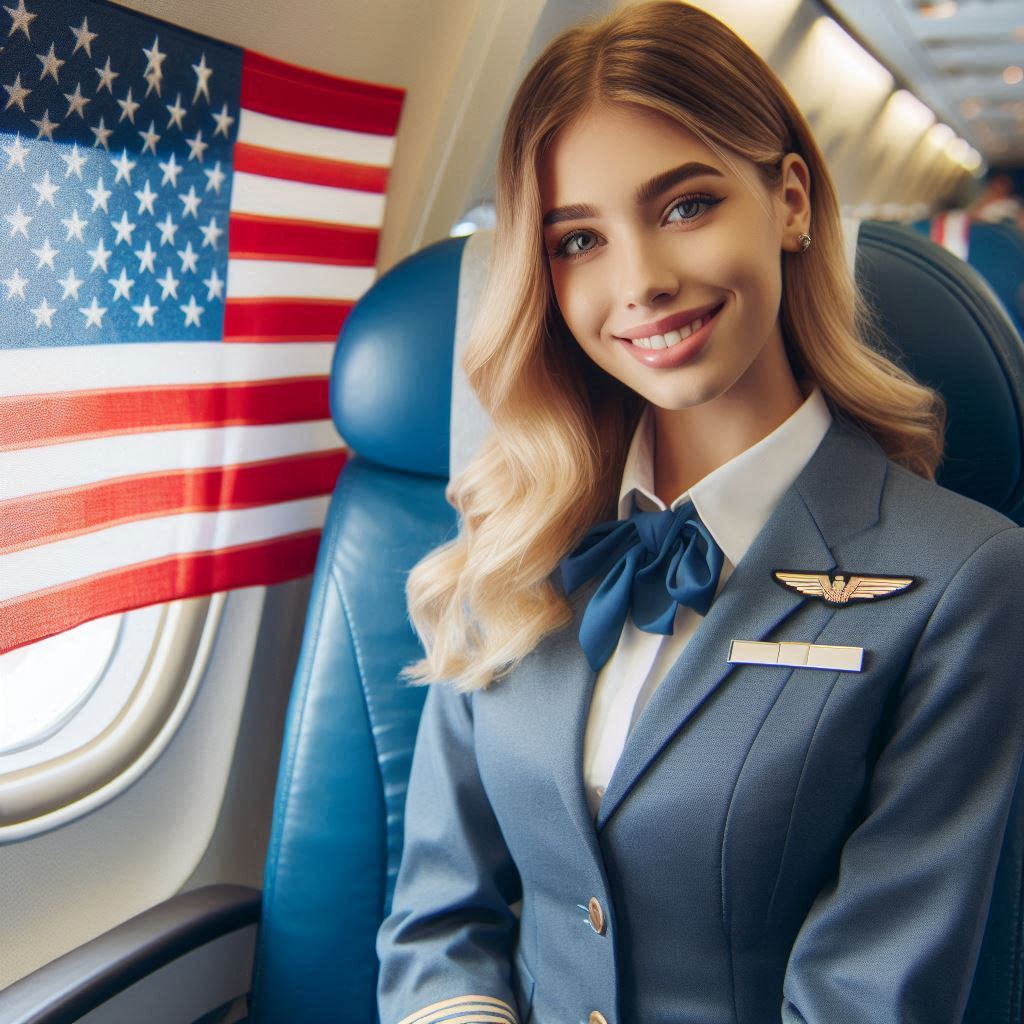Introduction
Flight attendants play a crucial role in the aviation industry.
They ensure passenger safety and comfort throughout the flight.
Their responsibilities include conducting safety demonstrations, serving meals, and assisting passengers.
Flight attendants must remain attentive and responsive to passenger needs.
They are trained to handle various situations, from medical emergencies to disruptive behavior.
The importance of their work cannot be overstated.
Flight attendants are often the first line of defense in emergencies.
They help create a pleasant travel experience for passengers.
Their skills in communication and conflict resolution significantly impact overall satisfaction.
However, flight attendants face numerous workplace challenges that can affect their performance and well-being.
Long hours and irregular schedules can lead to fatigue and stress.
They also encounter difficult passengers, which can create conflicts that require patience and skill.
Additionally, health and safety concerns, language barriers, and limited career advancement opportunities add to their challenges.
In this blog, we will explore the key workplace challenges faced by flight attendants.
We will discuss their impact and the importance of addressing these issues.
By understanding these challenges, we can better appreciate the dedication of flight attendants.
Long hours and irregular schedules
Demanding Nature of the Job in Terms of Working Hours
Flight attendants face demanding work schedules that significantly impact their daily lives.
The nature of this job often requires long hours, which can be physically and mentally exhausting.
Working extended shifts becomes the norm, with many attendants spending hours on their feet.
This relentless pace can lead to fatigue and burnout over time.
How Flight Attendants Often Have to Work Irregular Schedules, Including Weekends and Holidays
Irregular schedules add another layer of complexity to the lives of flight attendants.
Unlike traditional jobs with set hours, their schedules frequently change.
They often work early mornings, late nights, and everything in between.
This unpredictability makes it difficult to plan personal activities or maintain a routine.
Flight attendants must be prepared to work weekends, holidays, and special occasions.
While this flexibility can be appealing to some, it can also create significant stress.
Impact of Long Hours on Their Work-Life Balance and Overall Well-Being
The impact of these long hours and irregular schedules extends beyond work.
Flight attendants often struggle to maintain a healthy work-life balance.
With changing shifts, they may miss family events, social gatherings, or important milestones.
This absence can strain relationships with loved ones, leading to feelings of isolation and disconnection.
Moreover, long hours can affect their overall well-being.
Sleep disturbances are common due to inconsistent sleep patterns.
Many flight attendants report difficulties falling asleep or staying asleep, resulting in chronic fatigue.
This lack of rest can affect their performance on the job and their ability to provide excellent customer service.
Health issues can also arise from prolonged periods of stress and fatigue.
Flight attendants may experience headaches, gastrointestinal issues, and a weakened immune system.
Over time, these challenges can lead to more severe health problems.
To combat these issues, it is essential for flight attendants to prioritize self-care.
They must find ways to manage their time effectively and create routines that support their well-being.
Long hours and irregular schedules present significant challenges for flight attendants.
The demanding nature of their job can lead to fatigue, stress, and health issues.
Maintaining a healthy work-life balance becomes increasingly difficult in this environment.
Addressing these challenges is crucial for ensuring the well-being and effectiveness of flight attendants in their roles.
By recognizing and addressing these issues, airlines can support their staff better and foster a more positive work environment.
Read: Customer Service Tips for Pet Grooming Professionals
Dealing with difficult passengers
Challenges of Managing Passengers Who Are Unruly, Drunk, or Disrespectful
Managing difficult passengers presents significant challenges for flight attendants.
Unruly, drunk, or disrespectful behavior can escalate quickly in confined spaces.
Flight attendants often find themselves at the frontline, addressing these issues to ensure safety and comfort.
Examples of Situations Where Flight Attendants Have to Handle Conflict or Disruptive Behavior
One common scenario involves passengers who consume excessive alcohol.
These individuals may become loud, disruptive, or even aggressive.
For example, a passenger might refuse to remain seated during turbulence, jeopardizing their safety and the safety of others.
In another instance, a group of friends might engage in rowdy behavior, making it difficult for fellow passengers to relax.
In such situations, flight attendants must act swiftly to regain control of the cabin environment.
Handling conflict requires a delicate balance of firmness and empathy.
Flight attendants must diffuse tensions while maintaining professionalism.
They often employ de-escalation techniques to calm upset passengers.
For instance, a flight attendant might approach a loud passenger and politely request they lower their voice.
This simple action can often prevent further escalation.
However, some situations may require more intervention.
For example, if a passenger becomes verbally abusive or threatens others, flight attendants must involve security or the captain.
They must assess the situation quickly and determine the best course of action.
Communication is crucial in these instances, as flight attendants relay information to other crew members and prepare for possible outcomes.
Training and Support Available to Help Flight Attendants Manage Difficult Situations
Training and support play essential roles in preparing flight attendants for these challenges.
Airlines provide comprehensive training programs that include conflict resolution strategies.
These programs often simulate real-life scenarios, allowing attendants to practice their responses.
Role-playing exercises can help attendants build confidence in handling difficult situations.
Additionally, airlines emphasize the importance of teamwork.
Flight attendants rely on their colleagues for support when managing challenging passengers.
Effective communication among team members can ensure a united front in difficult situations.
Flight attendants are encouraged to share their experiences and strategies with one another.
This collaboration fosters a supportive work environment.
Moreover, ongoing training refreshes flight attendants’ skills and knowledge.
Many airlines offer workshops and seminars focusing on managing difficult passengers.
These sessions cover new policies, legal considerations, and psychological approaches to conflict resolution.
Access to mental health resources is also crucial.
Flight attendants can seek support after particularly challenging flights, helping them process their experiences.
Dealing with difficult passengers is a significant challenge for flight attendants.
Managing unruly or disrespectful behavior requires skill, training, and support.
Through comprehensive training programs and teamwork, flight attendants can effectively navigate these complex situations.
This preparation ultimately enhances passenger safety and comfort during flights.
Read: Nail Technician Etiquette: Dos and Don‘ts
Health and safety concerns
Physical Demands of the Job, Such as Standing for Long Periods and Lifting Heavy Objects
Flight attendants face significant physical demands in their roles.
They often stand for long periods during flights, which can lead to fatigue.
Extended standing can cause discomfort in their legs and feet.
This discomfort can develop into more serious conditions, such as varicose veins.
Additionally, flight attendants frequently lift heavy objects, including luggage and service carts.
Improper lifting techniques can lead to injuries, particularly to the back and shoulders.
Regularly handling these physical tasks can result in chronic pain and long-term health issues.
Risks of Exposure to Illness and Pathogens While Working in a Confined Space with Hundreds of Passengers
Working in confined spaces poses unique health risks for flight attendants.
They often encounter passengers with various illnesses, increasing the risk of exposure to pathogens.
Close quarters can facilitate the rapid spread of germs and viruses.
Seasonal illnesses, like influenza, can circulate quickly among passengers.
This exposure heightens the risk of illness for flight attendants, especially during busy travel seasons.
Furthermore, long-haul flights can expose them to different pathogens from various regions.
This increased risk can lead to absenteeism and decreased job performance.
Importance of Prioritizing Self-Care and Wellness to Prevent Burnout and Fatigue
Given these health risks, self-care becomes vital for flight attendants.
Prioritizing wellness can help them manage the demands of their job effectively.
Engaging in regular physical activity can improve overall health and reduce fatigue.
Stretching exercises can alleviate muscle tension and enhance circulation.
Flight attendants should also focus on proper nutrition.
Eating balanced meals can provide the energy needed to perform their duties.
Staying hydrated is equally important, especially during long flights.
Mental health is another critical aspect of self-care.
Flight attendants should recognize the signs of burnout and fatigue.
Taking breaks when possible can help recharge their energy levels.
Moreover, seeking support from colleagues or mental health professionals can provide additional coping strategies.
Airlines should promote a culture of wellness among their staff.
By encouraging self-care practices, they can help flight attendants maintain their physical and mental health.
Health and safety concerns are significant for flight attendants.
The physical demands of the job can lead to injuries and chronic pain.
Exposure to illness in confined spaces adds to these risks.
Prioritizing self-care and wellness is essential for preventing burnout and fatigue.
By implementing effective self-care strategies, flight attendants can better manage their health.
Airlines must also support their staff’s well-being to create a safer and healthier work environment.
This commitment will enhance the overall effectiveness and satisfaction of flight attendants in their roles.
Read: Developing Patience and Precision in Pet Grooming

Language barriers and cultural differences
How Flight Attendants Often Encounter Passengers from Diverse Backgrounds Who Speak Different Languages
Flight attendants frequently encounter passengers from diverse cultural backgrounds.
These passengers often speak various languages, making communication a challenge.
A flight attendant may serve travelers who speak Spanish, Mandarin, or Arabic, among other languages.
This diversity enriches the flying experience but complicates interactions.
Effective communication is crucial for providing excellent service and ensuring safety.
Challenges of Communication and Misinterpretations That Can Arise Due to Language Barriers
Language barriers can lead to misunderstandings between flight attendants and passengers.
Misinterpretations can arise from simple phrases or instructions.
For example, a passenger may misinterpret safety instructions due to language confusion.
This misunderstanding can create safety risks during emergencies.
Additionally, passengers may struggle to express their needs or concerns clearly.
A flight attendant might misjudge a passenger’s request or fail to address their issue effectively.
Such miscommunication can result in frustration and dissatisfaction.
Importance of Cultural Sensitivity and Awareness in Delivering Excellent Customer Service
Cultural differences add another layer of complexity for flight attendants.
Understanding cultural norms and practices is vital for effective service.
For instance, some cultures may prioritize direct eye contact, while others may consider it rude.
A flight attendant should be aware of these differences to foster positive interactions.
Moreover, showing respect for diverse customs can enhance passenger experiences.
For example, offering food options that respect dietary restrictions demonstrates cultural awareness.
This sensitivity helps build trust and rapport with passengers.
Training programs for flight attendants often include components on cultural sensitivity.
These programs aim to prepare them for interactions with diverse passengers.
By understanding different cultural backgrounds, flight attendants can tailor their approaches.
They learn to recognize and respect various customs and practices.
Additionally, language training can equip flight attendants with basic phrases in multiple languages.
This knowledge can enhance communication and improve service quality.
Language barriers and cultural differences present significant challenges for flight attendants.
They regularly encounter passengers from diverse backgrounds, often speaking different languages.
Communication difficulties can lead to misunderstandings and dissatisfaction.
Cultural sensitivity and awareness are essential for delivering excellent customer service.
Training programs play a critical role in preparing flight attendants for these challenges.
By fostering cultural understanding and effective communication, airlines can enhance the overall passenger experience.
Flight attendants who are equipped to navigate these complexities contribute significantly to customer satisfaction and safety.
Read: Tips for Nail Technicians Working in High-End Salons
Explore Further: Maintaining Your Vehicle as a Taxi/Rideshare Driver
Turbulence and emergency situations
Challenges of Dealing with Turbulence During Flights, Which Can Be Physically and Emotionally Taxing
Dealing with turbulence presents significant challenges for flight attendants.
Turbulence can create a physically jarring experience for passengers and crew.
Sudden jolts can disrupt service and pose safety risks.
Flight attendants must quickly secure items and ensure passenger safety.
This fast-paced response requires a keen awareness of the cabin environment.
Emotionally, turbulence can be stressful for both flight attendants and passengers.
Many passengers feel anxious during turbulent conditions, increasing the need for reassurance.
Flight attendants must remain composed while managing their own stress levels.
Training and Protocols in Place for Handling Emergency Situations, Such as Medical Emergencies or Evacuations
Airlines implement extensive training for flight attendants to prepare for emergencies.
Training includes procedures for medical emergencies, fires, and evacuations.
Flight attendants learn to assess situations quickly and effectively.
They practice using emergency equipment and conducting evacuations during drills.
These simulations prepare attendants for high-pressure scenarios.
They develop skills in leading passengers to safety and providing first aid.
Additionally, flight attendants receive training on dealing with diverse medical conditions.
This knowledge allows them to respond appropriately to passengers‘ needs.
Transform Your Career Today
Unlock a personalized career strategy that drives real results. Get tailored advice and a roadmap designed just for you.
Start NowImportance of Staying Calm and Composed Under Pressure to Ensure the Safety of Passengers and Crew
Staying calm and composed is crucial during turbulence and emergencies.
Flight attendants serve as leaders, guiding passengers through stressful situations.
Their demeanor can significantly influence passenger reactions.
When attendants remain calm, passengers often feel more secure.
This reassurance is vital in high-stress scenarios, such as evacuations.
Flight attendants must communicate clearly and effectively to maintain order.
They should provide instructions with confidence and clarity to avoid confusion.
Moreover, teamwork among crew members is essential during emergencies.
Flight attendants must work together to ensure a coordinated response.
Open communication and trust among the team enhance safety measures.
Each crew member has specific roles during an emergency, and adherence to these roles is vital.
Turbulence and emergency situations pose considerable challenges for flight attendants.
The physical and emotional toll of turbulence can affect both passengers and crew.
Comprehensive training equips flight attendants to handle various emergency scenarios.
Their ability to stay calm and composed under pressure ensures the safety of everyone on board.
By prioritizing effective communication and teamwork, flight attendants can successfully manage these situations.
Ultimately, their skills and composure contribute to passenger safety and confidence during flights.
Limited career advancement opportunities
Lack of Upward Mobility in the Profession, with Few Opportunities for Career Growth or Promotion
Limited career advancement opportunities significantly impact flight attendants.
Many flight attendants find few options for upward mobility.
They often remain in the same position for years, leading to job dissatisfaction.
While airlines may promote a few individuals to supervisory roles, these positions are scarce.
The competitive nature of the industry adds to the difficulty of moving up.
Many attendants aspire to management roles but encounter roadblocks in their path.
The lack of clear career progression can discourage talented individuals from staying in the profession.
Ways in Which Flight Attendants Can Expand Their Skills and Knowledge to Increase Their Chances of Advancement
To enhance their chances of advancement, flight attendants can pursue additional training.
They can take courses in customer service, conflict resolution, or first aid.
These skills are valuable and can improve job performance.
Attending workshops and seminars related to aviation can also broaden their knowledge base.
Flight attendants should seek certifications that add value to their resumes.
For example, obtaining a certification in emergency management can demonstrate expertise.
Networking within the airline industry is another effective strategy.
Building connections can provide insights into potential job openings.
Flight attendants can engage with colleagues, attend industry events, and join professional organizations.
These networks can offer mentorship and guidance for career growth.
Suggestions for Professional Development and Networking to Enhance Career Prospects
Professional development is essential for flight attendants seeking career advancement.
They should consider enrolling in courses focused on leadership and management skills.
These programs can equip them with the knowledge needed for higher positions.
Additionally, pursuing language courses can enhance their communication skills.
Multilingual abilities are increasingly valuable in a global industry.
Networking is crucial for exploring career opportunities.
Flight attendants should attend industry conferences and workshops to meet professionals.
Participating in online forums and social media groups can also connect them with peers.
Engaging in discussions can lead to new opportunities and insights.
Flight attendants can also seek out mentorship programs within their airlines.
A mentor can provide valuable advice and support for career progression.
Regularly discussing career goals with supervisors can help identify potential pathways for growth.
Limited career advancement opportunities challenge flight attendants.
However, expanding skills and knowledge can improve their chances of promotion.
By pursuing professional development and networking, flight attendants can enhance their career prospects.
The combination of proactive skill-building and networking can open new doors in their careers.
Ultimately, taking these steps can lead to a more fulfilling and rewarding professional life in the aviation industry.
Uncover the Details: How to Handle Stress as a Busy Event Planner
Conclusion
Flight attendants face several key workplace challenges.
Long hours and irregular schedules can lead to fatigue and stress.
They must also deal with difficult passengers, which can create conflict and require patience.
Health and safety concerns add physical and emotional demands to their roles.
Language barriers and cultural differences further complicate communication with passengers.
Finally, limited career advancement opportunities can lead to dissatisfaction and hinder professional growth.
Recognizing and addressing these challenges is vital.
Airlines should prioritize the well-being of flight attendants to enhance their effectiveness.
Providing support and resources can improve job satisfaction and performance.
Encouraging professional development can empower flight attendants to pursue career growth.
As passengers, we must appreciate the hard work of flight attendants.
Their dedication ensures safe and pleasant air travel experiences.
Showing respect and gratitude can make a difference.
Acknowledging their efforts contributes to a positive atmosphere on board.
By supporting flight attendants, we enhance the overall travel experience for everyone.
Let’s remember the challenges they face and value their commitment to service and safety.
Together, we can create a more respectful and understanding environment in the skies.




